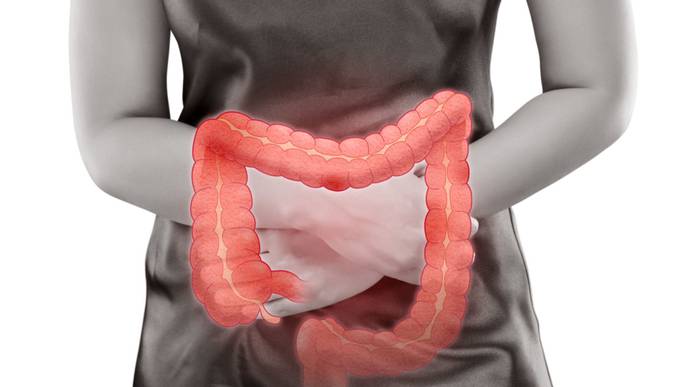Study Compares Upadacitinib and Ustekinumab for Outcomes in Ulcerative Colitis

11/17/2023
Rahul Dalal, MD, MPH
Credit: Brigham and Women's Hospital
Upadacitinib may be associated with an increased likelihood of achieving clinical response, steroid-free clinical remission, and endoscopic remission compared to ustekinumab for patients with ulcerative colitis (UC), according to a new study.
Presented at the American College of Gastroenterology (ACG) 2023 Annual Scientific Meeting in Vancouver, results from the multicenter retrospective cohort study indicated a greater proportion of patients taking upadacitinib achieved clinical response and steroid-free clinical remission at 8-16 weeks and endoscopic remission within 52 weeks compared to patients taking ustekinumab.1
Although there is no known cure for UC, symptoms can be alleviated by regulating the immune system and controlling flare-ups. This can be accomplished through a multifaceted treatment approach including medication, clinical trials, and alterations in diet and nutrition. Medication is typically the first line of treatment, including 5-aminosalicylates, corticosteroids, immunosuppressants, and biologics. However, the effectiveness of some treatments remains unclear.2,3
“Real-world data suggests similar effectiveness of tofacitinib and ustekinumab for UC. The comparative effectiveness of upadacitinib to ustekinumab is unknown,” wrote investigators.1
Rahul Dalal, MD, MPH, gastroenterologist and inflammatory bowel diseases specialist at Brigham and Women's Hospital at Harvard Medical School, and colleagues compared the clinical and endoscopic outcomes of upadacitinib with ustekinumab using electronic health records for adults who initiated either treatment at Mass General Brigham and the University of North Carolina between January 1, 2021, and February 1, 2023. Patients with Crohn disease, prior colectomy, and treatment for non-UC indications were excluded from the study.1
In total, 218 patients were enrolled in the study, including 70 treated with upadacitinib and 148 treated with ustekinumab. Among the upadacitinib cohort, 44.3% of participants were female and the mean age was 39.4 (interquartile range [IQR], 29.2-49.1) years. Among the ustekinumab cohort, 54.1% were female and the mean age was 38.9 (IQR, 29.8-54.3) years.1
Investigators pointed out patients in the upadacitinib group had a greater number of prior advanced therapy failures and elevated baseline simple clinical colitis activity index (SCCAI) compared to the ustekinumab group (6 vs 4; P < .01).1
The primary outcome of interest was clinical response at 8-16 weeks, defined by investigators as improvement in simple clinical colitis activity index (SCCAI) by >3 points, improvement in 9-point Mayo score by >3 points, or provider documentation of clinical response. Secondary outcomes were steroid-free clinical remission at 8-16 weeks, endoscopic response, and endoscopic remission at first endoscopic assessment within 52 weeks.1
Results revealed a greater proportion of patients taking upadacitinib met all outcomes except for treatment discontinuation and endoscopic response, which were similar between groups. Investigators then performed inverse probability of treatment-weighted logistic regression to determine the association of upadacitinib and ustekinumab with the primary and secondary outcomes.1
Upon analysis, upadacitinib was associated with a greater likelihood of clinical response (adjusted odds ratio [aOR], 2.39; 95% confidence interval [CI], 1.04-5.49), steroid-free clinical remission (aOR, 3.17; 95% CI, 1.55-6.46), and endoscopic remission (aOR, 5.10; 95% CI, 1.34-19.3). Investigators noted results were similar in a sensitivity analysis excluding upadacitinib patients with prior ustekinumab exposure.1
Adverse events occurring within 16 weeks were reported by 5 in the upadacitinib group. These events included acne, angina due to anemia, elevated liver enzymes, nausea, and pneumonia. Adverse events occurring within 16 weeks were reported by 10 in the ustekinumab group. These events included appendicitis, arthralgia, acute infusion reaction, bone pain, bowel microperforation, fatigue, nausea, and rash.1
“In a real-world UC cohort, [upadacitinib] was associated with significantly higher odds of clinical response, SFCR, and endoscopic remission vs ustekinumab,” concluded investigators.1
References:
- Dalal RS, Kallumkal G, Cabral HJ. 72 - Comparative Effectiveness of Upadacitinib vs Ustekinumab for Ulcerative Colitis at 8-16 Weeks: A Multicenter Retrospective Cohort Study. Paper presented at: ACG 2023 Annual Scientific Meeting. Vancouver, Canada. October 20 – 25, 2023.
- Mayo Clinic. Ulcerative Colitis. Diagnosis & Treatment. September 16, 2022. Accessed October 25, 2023. https://www.mayoclinic.org/diseases-conditions/ulcerative-colitis/diagnosis-treatment/drc-20353331
- Crohn’s and Colitis Foundation. Ulcerative Colitis Treatment Options. What is Ulcerative Colitis? Accessed October 25, 2023. https://www.crohnscolitisfoundation.org/what-is-ulcerative-colitis/treatment-options

Facebook Comments